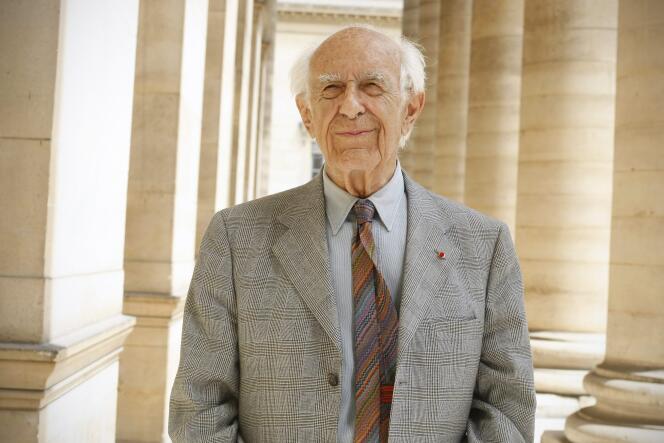


Few men have lived as many lives as Claude Alphandéry, who died on March 26 at the age of 101. First and foremost, he was a member of the French Resistance, which shaped the rest of his long life. Born in Paris on November 27, 1922, the only son of an early-divorced Parisian bourgeois couple, he was 18 when the German army invaded France.
After taking an intensive literature hypokhâgne course in Bordeaux, he moved to Lyon to attend the prestigious Lycée du Parc. There, he distributed leaflets and underground newspapers and carried out some liaison work. A classmate's comment about "Jewish scum" accelerated his involvement in the Resistance. "I had to rediscover my identity, prove my character and my capacity for resistance. (...) After a restless night, I decided to leave my room and school right away," he recounted in Une famille engagée. Secrets et transmission ("A Committed Family: Secrets and Transmission," 2015), the last of his 11 books.
He went underground in the winter of 1942 and the following year became the departmental leader of the Resistance in Drôme and Ardèche. He ended the war as president of the Drôme departmental liberation committee and lieutenant-colonel of the French Interior Forces (FFI). Despite his young age, he succeeded in reorganizing networks deeply divided between Communists and those supporting Charles de Gaulle.
"This touches on one of the main themes of my life: If I'm capable of anything, it's bringing people together," he recounted in Une si vive résistance ("Such Strong Resistance," 2011). "This undoubtedly comes from a kind of empathy I have with people: My personal commitments don't exclude consideration for those on the other side."
Those who knew him remember his intellectual vivacity, his sense of negotiation, his modesty and his eternal smile, frank and mischievous. In the maquis (rural guerrilla bands of Resistance fighters), during long nights of fighting, he forged his political convictions in contact with Communist fighters, rejecting the "money powers" of the Third Republic. He was radicalized by his radical-socialist grandfather, mayor and MP of Chaumont, a small conservative town in northeastern France.
He joined the Parti Communiste Français (PCF) in 1946. After the Liberation, he moved to Moscow as the information attaché at the French embassy. With barely enough time to learn Russian and Marxism, the Iron Curtain fell across Europe. He returned to Paris to take the entrance exam for the elite ENA school for civil servants but soon quit. Against the tide of history, this great romantic returned to Moscow with a twofold project: to find the young Russian woman he was in love with and to try to set up a French-language weekly. Torpedoed by the Soviet authorities, the adventure came to nothing.
You have 61.2% of this article left to read. The rest is for subscribers only.
